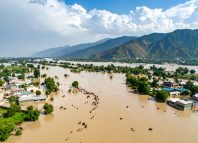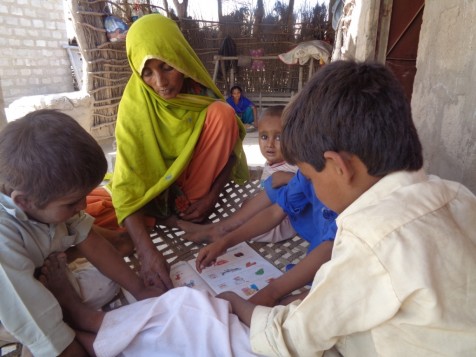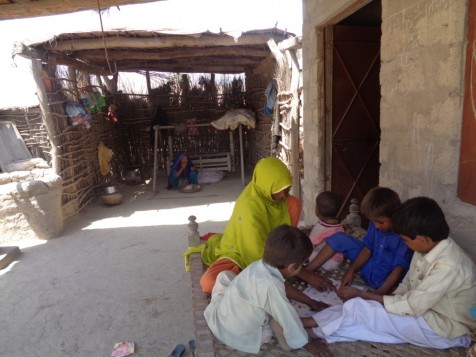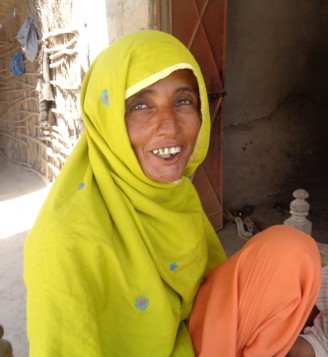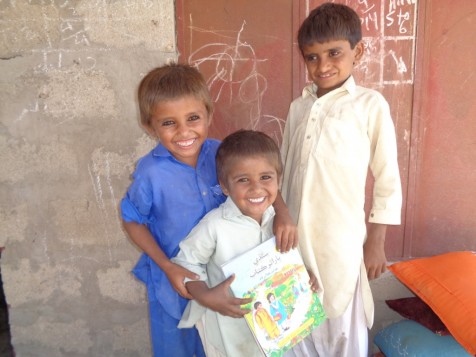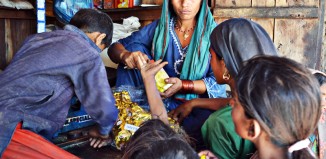As a child, Kazbano, dreamed of obtaining an education, but cultural constraints and poor economic conditions prevented her from achieving her goal. At the age of 40, she is a mother of five children residing in Doso Himaiti Village, Thatta. “My parents were not educated; therefore, I was unable to convince them to send me to the nearest school in my village. I also got married at an early age,” she shared with grief.
A literate woman can support her father and husband with income generation. She can also contribute well in the upbringing of her children and make them a noble citizen.
Kazbano highlighted that illiteracy in her community prevents understanding on the importance of education. The mobility of women and girls is also limited, reducing their opportunity to acquire skills or education outside of their homes.
Her hope was restored when Community World Service Asia engaged the community through mobilization meetings and the formation of a community organization. Impressed by the confidence of female social mobilizers, she found the interest to learn revive in her. She requested her husband to agree to her participation in the adult literacy center. “Initially he resisted because he was concerned about our children, but later he allowed me to join the center with hope that if I am educated, I can also support my children for their education.”
The phonetic method adopted by the trainers at the center made learning much easier. “I am now able to read and write small paragraphs, read Sindhi newspapers, small sentences from books, sign boards, doctors’ names in hospitals, etc. I can also read medicine names as well as the expiry date. Now, I can support my children to acquire quality education. I am very thankful to Community World Service Asia for their development efforts for rural women like me.”
Community World Service Asia with financial support from Christian Aid (CA) is successfully implementing the project, Alleviating Poverty through Women’s Empowerment and Livelihoods Development with a Disaster Resilient Approach in Union Council (UC) Bijora, Thatta, Pakistan – Phase II. The project aims to reduce poverty and gender inequality among highly marginalized women and men through socio-economic empowerment and improved disaster resilience in disaster prone area of Thatta.

